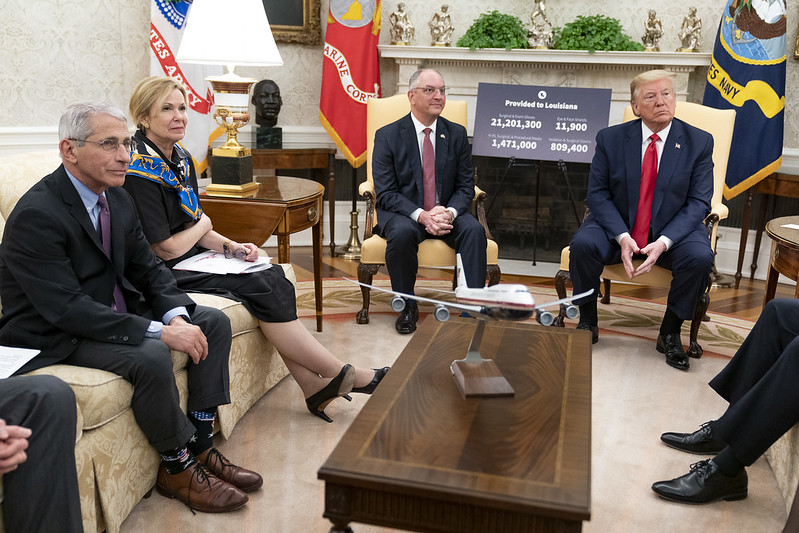Diane’s farewell message
After 52 years at WAMU, Diane Rehm says goodbye.

Dr. Anthony Fauci, at the White House, announced this week that the results of a trial using the anti-viral drug Remdesivir showed some promise.
This week, the U.S. passed 60,000 deaths from COVID-19 and more than one million people are now infected. And Diane’s guest, Dr. Michael Osterholm, says the country is still in the very early stages of this public health crisis. So, what exactly does that mean? And what might our lives look like as scientists race to come up with a vaccine?
Diane asked Dr. Osterholm these questions and how hopeful he is that the medical community can find therapies to treat the virus.
Dr. Osterholm is the director of the Center for Infectious Disease Research and Policy at the University of Minnesota. Diane spoke with him Thursday afternoon.
After 52 years at WAMU, Diane Rehm says goodbye.
Diane takes the mic one last time at WAMU. She talks to Susan Page of USA Today about Trump’s first hundred days – and what they say about the next hundred.
Maryland Congressman Jamie Raskin was first elected to the House in 2016, just as Donald Trump ascended to the presidency for the first time. Since then, few Democrats have worked as…
Can the courts act as a check on the Trump administration’s power? CNN chief Supreme Court analyst Joan Biskupic on how the clash over deportations is testing the judiciary.